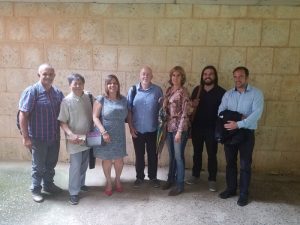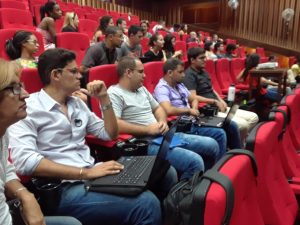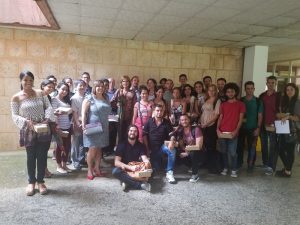The PET course was designed to train Cuban researchers and professionals to work with new kinds of short-life isotopes generated using the cyclotron installed at the Medical Surgical Research Centre in Havana. This technology will offer new possibilities in the early diagnostic of cancer and new applications in neurosciences and cardiovascular research.

Cuba produces radiopharmaceuticals in the National Isotope Centre (CENTIS) for Nuclear Medicine services in hospitals according to the regulations of IAEA(International Atomic Energy Agency) since 2015.

Fifty-one papers were discussed in the session on Radiopharmacy at the 33rdLatin American Congress in Chemistry: 14 oral presentations and 37 posters from 7 countries, of which 29 were from Cuban institutions.

Participants in the course and workshop on PET: Technology and Applications were from academia, research centres, health services and government institutions related to safety and quality control of pharmaceuticals:
- Institute for Advanced and Applied Technology (InSTEC) and Faculty of Chemistry both from University of Havana
- Medical Surgical Research Centre, Institute of Oncology and Radiotherapy, Teaching Hospital Hermanos Amejeiras, Institute of Nephrology and the National Teaching Hospital Enrique Cabrera all from Ministry of Public Health
- Centre for Protection and Hygiene of Radiations (CPHR) and Control of Medicaments, Equipment and Devices in Medicine (CECMED) as government agencies.
- National Centre of Isotopes (CENTIS) from Ministry of Science, Technology and Environment of Cuba
The organization of the PET course in Havana was a collective effort from researchers in Cuba and abroad including the InSTEC (University of Havana), Division of Imaging Sciences (King’s College London), Ion Beam Application, S.A. (Louvain-La-Neuve), π-POMOD (Zurich), Medical Surgical Research Centre (Havana), National Isotope Centre (Havana) and ASCAST (UK).
